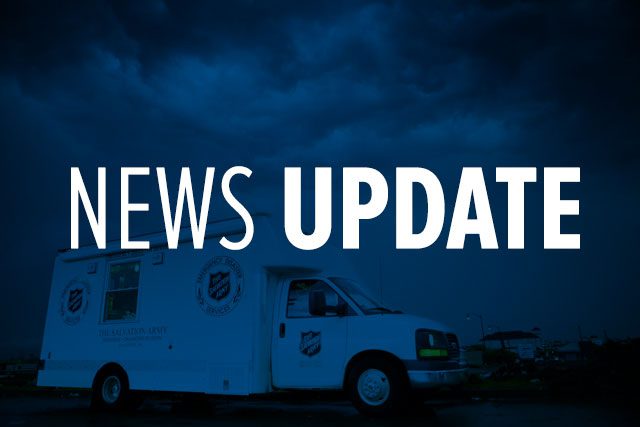San Francisco
by Judy Vaughn –
Lt. Fred Kim of the San Francisco Korean Corps led eight members of his congregation to Uganda and Rwanda this summer. They went under the auspices of the World Mission Frontier in the Bay Area. Because they took such a large contingent and participated so fully in the work, they received a great deal of publicity in the Korean press about the trip. Kim was the only ordained minister in the larger group of 19 and, as such, was invited to lead a five-day seminar of 35 Rwandan pastors.
It was an experience he remembers emotionally. The pastors were of different faiths–Methodist, Presbyterian, Angli-can, Pentecostal, Catholic and Church of God–some ordained by their churches, some self-proclaimed evangelists. Some were Hutus. Some were Tutsis.
“It was hard to start,” says Kim. “They didn’t know me. I didn’t know them.” Then he realized it was his own testimony as a Korean Christian that might break the ice. His situation as a child in Korea was not much different from the horrors of recent times in Rwanda. The Korean War tore families apart. Brother fought against brother. Millions of people were killed.
To the Rwandan pastors, he told of his mother’s grief at losing her family, all of whom lived in North Korea. When the war broke out, she moved to the South and has never seen them again. He spoke of her anguished early-morning prayers for him as a child, when he woke to find her kneeling on the floor beside his bed, praying for him with Bible in hand. “God answered the prayers of that little Korean mother,” he stressed. “God can answer your prayers, too.”
As the seminar continued, people “opened their hearts.” But it was not done in a moment, says Kim. He could see they were not mingling together. During the final day, he asked them to form groups of two or three, sitting with those with whom they would be least comfortable. We asked them to pray for each other, “even though you killed my family or burnt my house, even though the roots of bitterness are very deep.”
It was on that day he felt “a healing stream, a focus on forgiveness.” And it was during a time of African singing and dancing that he felt deeply the soul of Africa.
Kim asked them why they could dance and express such joy. One pastor responded very clearly, “We long for heaven and this is our expression of the joy of salvation. War cannot take it away. Genocide cannot take it. Poverty cannot take it. Nobody can take it away.”
Music Director Kin Yoo–also originally from Korea, also with first-hand memories of the Korean war–felt it, too. In a kindred spirit, he led the music sessions and speaks with great respect for the harmonies and rhythms he was able to learn from the Africans to add to his own musical tradition. The Salvation Army group had brought four guitars and a keyboard, which they left. In fact, they had filled their two-bag luggage allowance with so much equipment, food and clothing for distribution, religious videos, and printed material that there wasn’t room for sleeping bags.
In one group, focused on teaching Sunday school, was a young woman from the Korean Corps named Min Jung Kim, or “Deanna.” I no longer see stereotypes,” she says. “I see souls poor in the worldly way, but so rich spiritually. I remember the eyes. The smiles in the eyes.”
The sense of families torn apart and horrendous genocide is still very real in Rwanda. Hutu and Tutsi tensions remain. Now, one person from the San Francisco missionary group remains as well.
Robert Brown–an African American graduate student and special education major at St. Mary’s College–was a counselor at the Army’s Camp Redwood Glen several years ago. He volunteered to go with the Korean Corps members. Having seen the terrible plight of the street children in Rwanda, he has decided to offer his services in that country for a full year.











